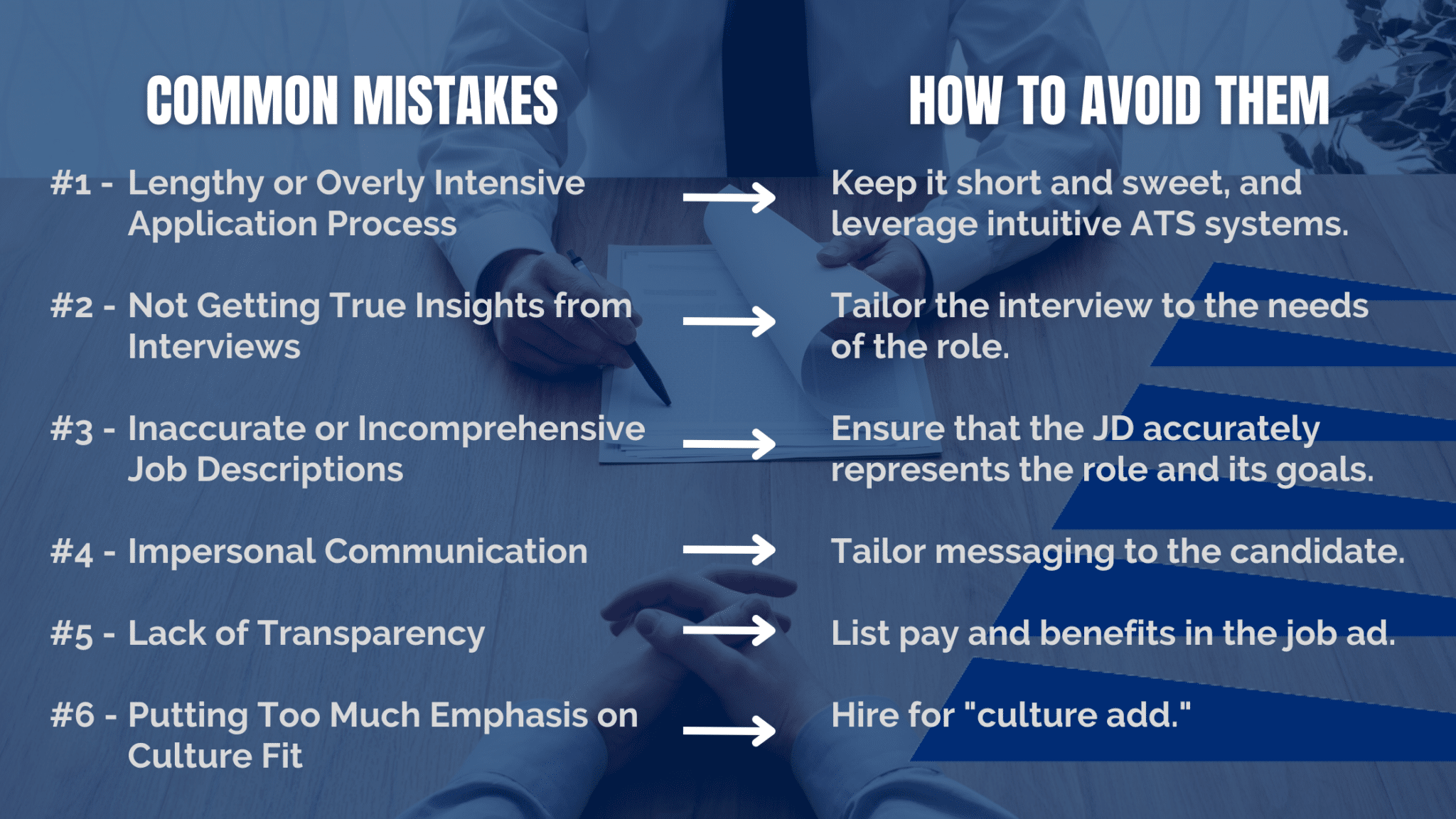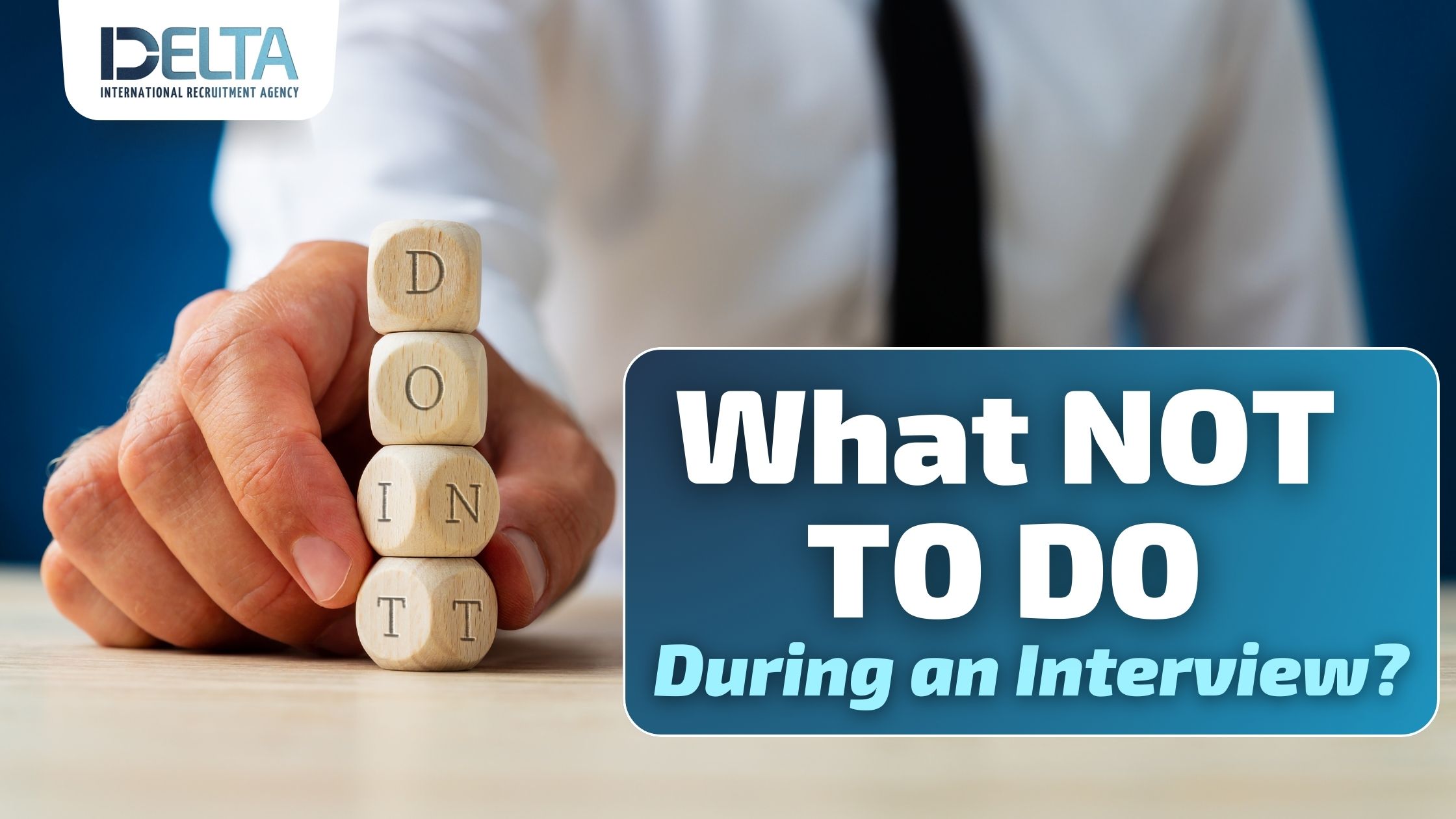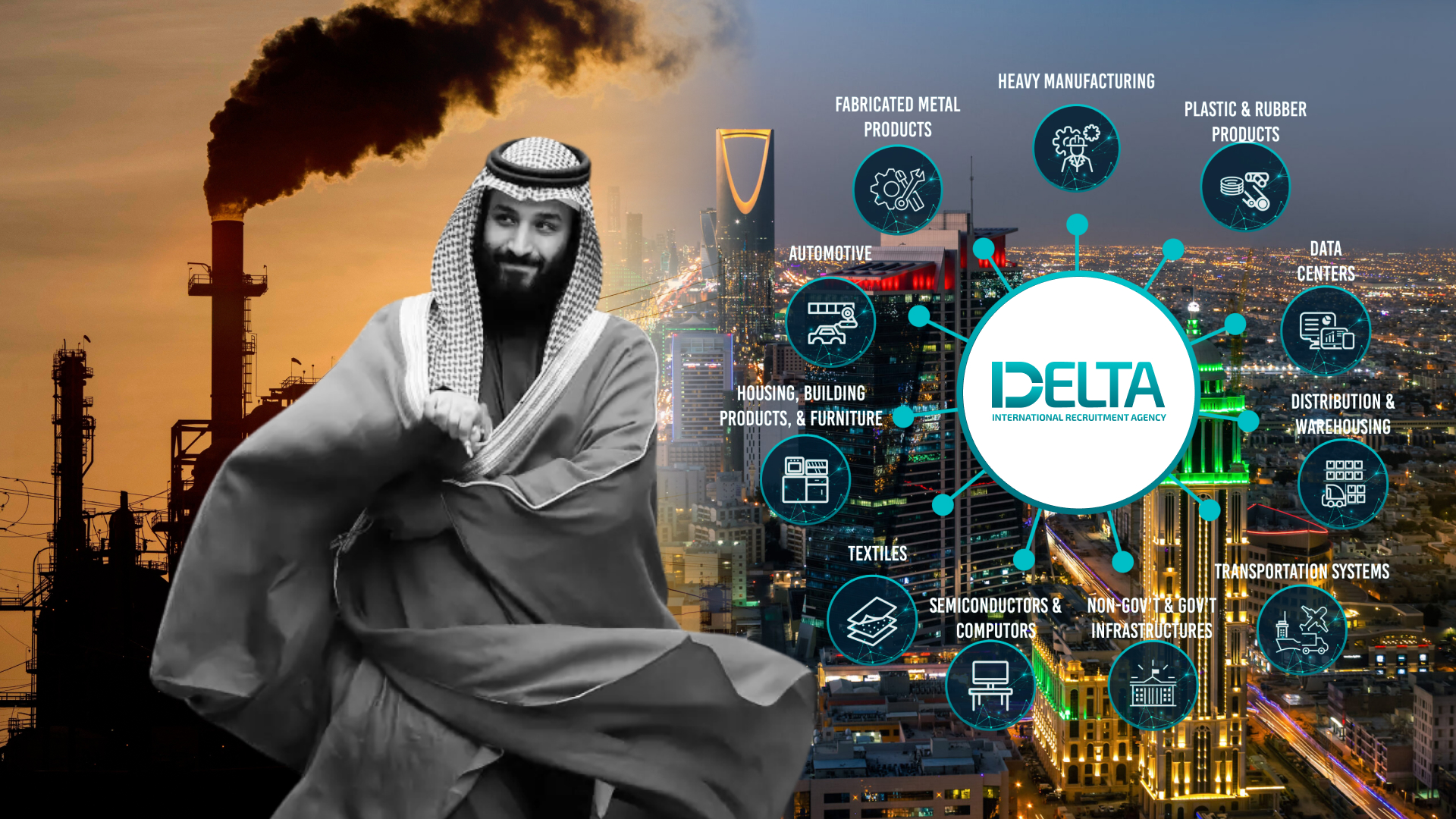Interviews are crucial moments that can determine the course of your career. Even recruiters form recruitment agencies reccomend to prepare ahref for it. However, certain mistakes can sabotage your chances of landing that dream job. Here are some common interview mistakes to steer clear of:
Common Mistakes to Avoid
- Not being prepared: Lack of preparation can leave you fumbling for answers and portray a lack of interest.
- Coming across as unprofessional: Maintain a polished and respectful demeanor throughout the interview.
- Talking too much or too little: Strike a balance between sharing information and actively listening to the interviewer.
- Not asking questions: Failing to inquire about the company or role can suggest disinterest.
- Being negative or complaining: Keep the conversation positive and avoid dwelling on negative aspects.
- Not following up after the interview: Expressing gratitude and reiterating interest is crucial post-interview.
By sidestepping these mistakes, you can significantly enhance your chances of leaving a positive impression and securing the job.

Image Source: bluesignal.com
Mistakes to Avoid During the Interview Process
Navigating the interview process requires finesse and attention to detail. Here are key tips to avoid making critical errors:
- Do your research: Thoroughly understand the company and the position you're applying for.
- Prepare for common questions: Anticipate and practice responses to common interview questions.
- Dress professionally: Choose attire that reflects the formality of the company culture.
- Be yourself: Authenticity fosters genuine connections with the interviewer.
- Respect everyone: Display politeness and courtesy to all individuals encountered during the process.
- Ask questions: Demonstrate your interest by inquiring about the company and the role.
- Follow up: Send a thank-you note promptly to express gratitude and restate your enthusiasm.
By adhering to these guidelines, you can navigate the interview process with confidence and increase your chances of success.
How to Dress for an Interview
Your attire plays a crucial role in shaping the interviewer's perception. Follow these dressing tips for a successful interview:
- Dress professionally: Opt for a suit or business casual outfit, reflecting the company's formality.
- Maintain cleanliness: Ensure your clothes are clean and well-pressed.
- Polished footwear: Wear well-maintained, polished shoes.
- Minimal accessories: Avoid excessive jewelry or makeup.
- Comfort is key: Choose attire that allows you to remain comfortable and composed.
For specific recommendations:
- For men: A suit is a safe choice, or a business casual outfit with a dress shirt, chinos, and a blazer.
- For women: Opt for a suit, dress, or a business casual ensemble with a blouse, skirt, and blazer.
- When in doubt, err on formality: If unsure, choose a more formal attire and adjust as needed during the interview.
Remember, your attire contributes significantly to the impression you make, so invest time in dressing professionally.
How to Conduct Yourself During an Interview
Maintaining professionalism is crucial for a successful interview. Follow these tips to conduct yourself effectively:
- Punctuality is key: Arriving on time demonstrates respect for the interviewer's schedule.
- Dress professionally: Adhere to the company's dress code, erring on the side of formality when in doubt.
- Politeness and respect: Use a firm handshake, make eye contact, and communicate courteously.
- Stay engaged: Express interest in the position and the company by asking relevant questions.
- Be authentic: Be yourself, as authenticity is appreciated and easily discernible.
By embodying these principles, you can present yourself in the best light and enhance your chances of securing the job.

Image Source: wellfound.com
How to Follow Up After an Interview
The follow-up is a critical step in maintaining a positive impression post-interview. Consider these strategies:
- Send a thank-you note: Express gratitude within 24 hours, restating your interest and qualifications concisely.
- Make a courtesy call: If unable to send a note promptly, a brief call to express thanks and reiterate interest is acceptable.
- Email follow-up: If days pass without a response, a polite email inquiring about the decision can be sent.
Effective follow-up demonstrates your commitment and keeps you at the forefront of the interviewer's mind.
Common Interview Mistakes and How to Avoid Them
Steer clear of these common interview mistakes to leave a lasting positive impression:
- Insufficient company research: Thoroughly understand the company to showcase genuine interest.
- Lack of preparation: Prepare for common interview questions to demonstrate competence.
- Inappropriate attire: Dress professionally, aligning with the company's culture and formality.
- Lateness: Punctuality is crucial; plan your schedule to arrive on time.
- Excessive talking: Strike a balance between sharing information and actively listening.
- Avoiding eye contact: Establishing eye contact conveys confidence and engagement.
- Quick answers: Thoughtful responses demonstrate competence and consideration.
- Not asking questions: Inquire about the company and role to show genuine interest.
Avoiding these common pitfalls can significantly boost your chances of making a positive impression and securing the job.
What to Do If You're Asked an Illegal Interview Question
Encountering illegal interview questions requires tact and consideration. Consider these options:
- Directly answer the question: While the safest option, it may not address the issue of the question's legality.
- Refuse to answer: A more assertive option, but it carries the risk of potential offense.
- Report the interviewer: The most proactive choice, but also the most challenging.
Examples of illegal questions include those related to race, age, marital status, criminal history, or salary expectations.
Interview Mistakes to Avoid for Entry-Level Jobs
Securing an entry-level job requires a strong first impression. Avoid these common mistakes during the interview:
- Dress professionally: Even for entry-level positions, dressing appropriately is crucial.
- Punctuality and preparation: Arrive on time, well-prepared to demonstrate your eagerness to learn.
- Balance nervousness: Stay composed and avoid excessive nervousness or talkativeness.
- Ask questions: Display interest by inquiring about the company and role.
- Delay salary discussions: Avoid discussing salary expectations too early.
- Maintain a positive demeanor: Stay optimistic and avoid negativity.
- Follow up: Express gratitude and reiterate interest post-interview.
By sidestepping these entry-level interview mistakes, you enhance your chances of landing the job.
Mastering the art of interviews involves preparation, professionalism, and effective communication. By avoiding common mistakes and following best practices, you can maximize your chances of making a positive impression and securing the job you desire. Remember, each interview is an opportunity to showcase your skills and fit for the role, so make the most of it!
Tips of Jobs Seekers: recruit




